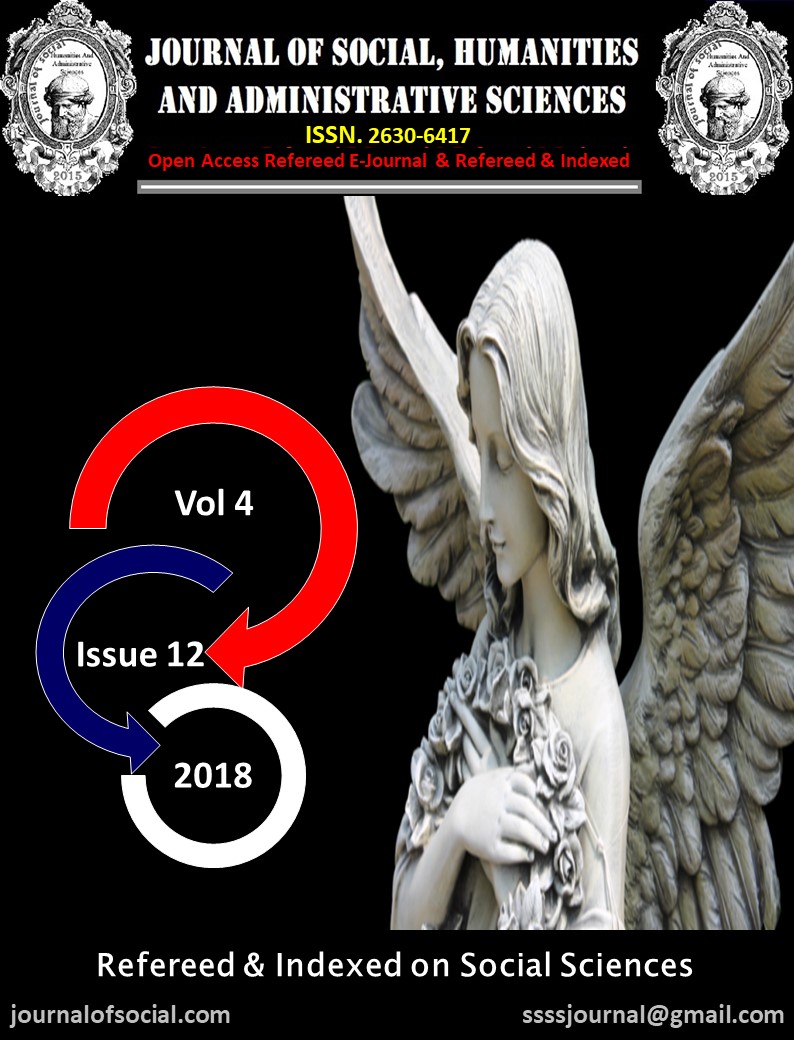Author :
Abstract
Osmanlı Devletinin Balkanlardaki hâkimiyetini önemli ölçüde sınırlandıran Osmanlı-Rus savaşının akabinde, özellikle Yunanistan ve Türkiye’de ulus-devlet yapısını güçlendirmeye yönelik politikalar hız kazanmıştır. Öyle ki, etnik temele dayalı ayrımcılığa dayalı olan ve homojen bir ulus oluşturma amacından hareketle yaratılan dışlayıcı kimlik, Balkan Türklerinin bölgede yaşamasını imkânsız hale getirdi. Tam da bu bağlamda ortaya çıkan mübadele çözümü, zorunlu göçleri ve göç edenler bakımından da farklı intibak sorunlarını gündeme taşıdı. Bu makale, Yunanistan’ı uluslaşma sürecine götüren sosyopolitik ortamı ve mübadelenin sonuçlarını Türkiye’yle mukayeseli olarak siyasi, sosyal ve ekonomik boyutlarıyla irdelemeyi hedeflemektedir
Keywords
Abstract
As a regional actor Greece accelerated to follow the policies strengthening the nation-state aftermath of the Ottoman-Russian War (1877-78) which was sharply limited the Ottoman rule in Balkan Peninsula. Nevertheless, the exclusive identity depended upon the ethnic separation and the attempts to create a homogeneous nation led to the life unbearable for Turkish minority living in the region. In this context, the exchange of population as a unique solution to this problem brought up the enforced immigration into the agenda. This article aims to elaborate the sociopolitical context leading the nation building process of Greece and the results of the exchange of population with its political, social and economic dimensions by comparing the Turkey’s position in this period of time.
Keywords
- ADIVAR, Halide Edip, (1987), Türk’ün Ateşle İmtihanı, Atlas Yayınevi, İstanbul.
- ADIVAR, Halide Edip, (1987), Türk’ün Ateşle İmtihanı, Atlas Yayınevi, İstanbul.
- AGHATABAY, Cahide Zengin (2007), Mübadelenin mazlum misafirleri/ Mübadele ve kamuoyu 1923-1930, Bengi yayınları, İstanbul
- AKA, Asiye, (2010), Kimliğe Teorik Yaklaşımlar, C.Ü Sosyal Bilimler Dergisi, Mayıs, cilt:34, sayı:1, s.19-20
- ARI, Kemal, (2008), Büyük Mübadele Türkiye’ye Zorunlu Göç (1923-1925), Tarih Vakfı Yurt Yayınları, İstanbul.
- BOZDAĞLI, Yücel, (2014), “Türk- Yunan Mübadelesi ve Sonuçları”, TSA/YIL:18 özel sayı, s: 3, Ocak/January.
- CEBESOY, Ali Fuat, (2000), Milli Mücadele Hatıraları, Temel Yayınları, İstanbul.
- ÇELİK, Hacer, (2008), Çok kültürlülük ve Türkiye’deki görünümü, U.Ü Fen Edebiyat Fakültesi Sosyal Bilimler Dergisi, sayı:15, s.321
- ÇETİN, Nurten, (2010), “1914 Osmanlı-Yunan Nüfus Mübadelesi Girişimi”, Selçuk Üniversitesi Sosyal Bilimler Enstitüsü Dergisi, Sayı 24, s. 149-172
- ÇOLAK, Filiz, (2003), Bulgaristan Türklerinin Anavatana Göç Hareketi(1950-1951) Türk Dünyası Araştırmaları, sayı:14, s.115.
- ÇULHA, İbrahim, (2017),“Bulgaristan Türklerinin Türkiye’ye Göç Süreci (1950-1951)”, Tarih, eğitim ve kültür dergisi, sayı:1, s.66
- ERDAL, İbrahim, (2006), Mübadele (Uluslaşma Sürecinde Türkiye ve Yunanistan 1923-1925), IQ Kültür Sanat Yayıncılık, İstanbul.
- 53 BOZDAĞLI, Yücel, (2014), “Türk- Yunan Mübadelesi ve Sonuçları”, TSA/YIL:18 özel sayı, s: 3, Ocak, s. 30GERAY, Cevat, (1970), Türkiye’de Göçmen Hareketleri ve Göçmenlerin Yerleştirilmesi”, Amme İdaresi Dergisi, C.I, sayı:1-4, s.25
- GÖZE, Ergun, (1985), Bulgaristan Türkleri Kaddafi, Özal, vs.., Türk Kültürü Bulgaristan Türkleri Sayısı, Sayı: 263, Ankara, Mart ,s.45
- HIRSCHON, Ree, (2007), Egeyi Geçerken- 1923 Türk- Yunan Zorunlu Nüfus Mübadelesi, (Akt.: M.PEKİN- E.ALTINAY), İstanbul Bilgi Üniversitesi Yayınları 95, İstanbul.
- KARA, Bülent, (2005), “Dramatik Bir Huzur Mücadelesi: Mübadele”, Atatürk Üniversitesi Sosyal Bilimler Enstitüsü Dergisi, Cilt 5, Sayı 1, s. 187- 198
- KITSIKIS, Dimitri, (1963), Yunan Propagandası, Meydan Yayınevi, İstanbul.
- KODAMAN, Ömer, (2008), Türkiye İle Yunanistan Arasında Nüfus Mübadelesi, Yüksek Lisans Tezi, Kahramanmaraş Sütçü İmam Üniversitesi.
- MUSTAFAİ, Habil, (2006), Balkanlarda Azınlık Hakları, yüksek lisans tezi, Ankara Üniversitesi Sosyal Bilimler Enstitüsü Uluslararası ilişkiler bilim dalı, Ankara/2006, s.13-18
- NUR, R. ve CREW, J. C. (2007), Lozan Barış Konferansının Perde Arkası, 2. Basım. Örgün Yayınevi, İstanbul
- ÖKSÜZ, H. (2000) “Türk-Rum Nüfus Mübadelesinin Sebep ve Bazı İstisnaları”, Atatürk Araştırma Merkezi Dergisi, Cilt 16, Sayı 48, s. 753-769.
- ÖZTÜRK, D. (2010), “Kitap İncelemesi”, YILDIRIM, O (2006) Diplomasi ve Göç: Türk-Yunan Mübadelesinin Öteki Yüzü, Uluslararası İlişkiler, Cilt 6, Sayı 24, s. 149-154
- PEKİN, Müfide, (2005), Yeniden Kurulan Yaşamlar- 1923/ Türk-Yunan Nüfus Mübadelesi, İstanbul Bilgi Üniversitesi Yayınları, İstanbul.
- RİCHARD, Clogg, (1997), Modern Yunanistan Tarihi, (Akt.: D. ŞENDİL), İletişim Yayınları, İstanbul.
- SEZER, S. ,(2012), Lozan ve Mübadele, T.C. İstanbul Kültür Üniversitesi, Atatürk ilkeleri ve İnkılâp Tarihi Araştırma ve Uygulama Merkezi Yayınları, İstanbul.





